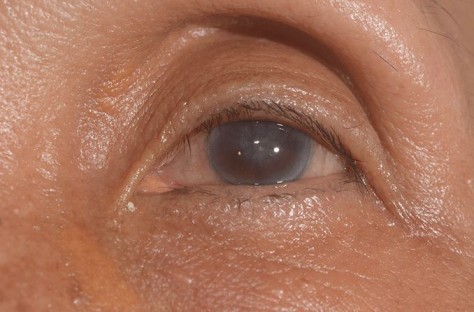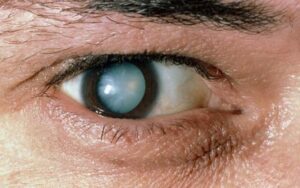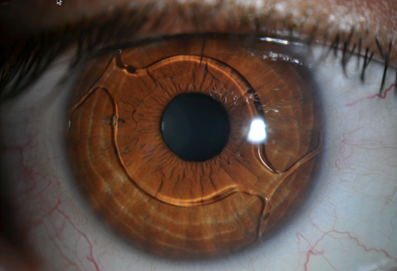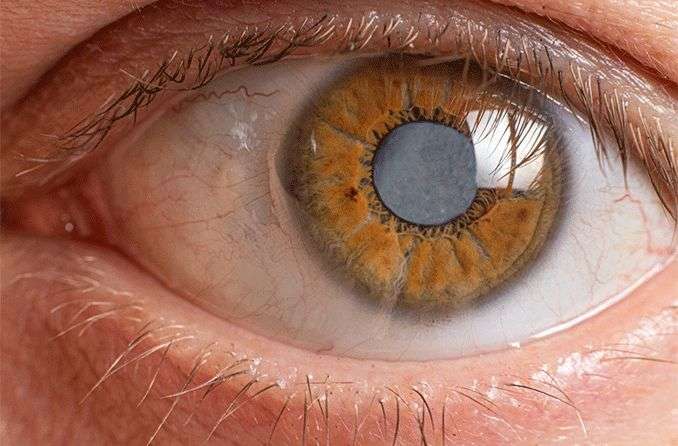More than 40 million people worldwide are projected to have cataracts by the year 2022. If you are one of them, you need to know that cataracts can affect your life in more ways than you think. This blog will look at how cataract affects your life in terms of your daily routine, enjoyment of everyday tasks and your overall sense of well-being.
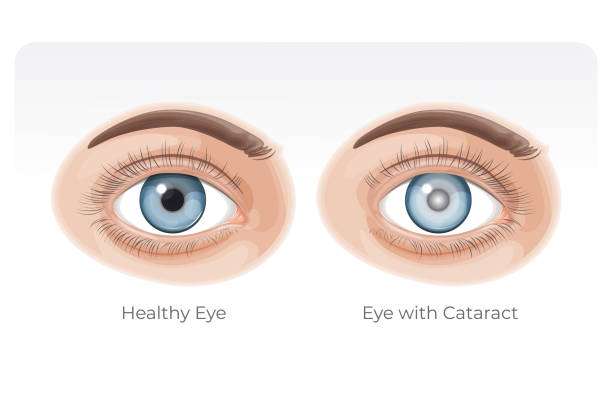
What are cataracts?
Cataracts are a common eye condition that causes clouding of the natural lens of the eye, which is located behind the iris (colored part of the eye) and pupil. This clouding can cause blurry vision, sensitivity to light, difficulty seeing at night, and can eventually lead to blindness if left untreated.
Cataracts are most commonly associated with aging, but they can also be caused by other factors such as injury to the eye, certain medications, radiation exposure, and medical conditions such as diabetes. Treatment for cataracts typically involves surgery to remove the cloudy lens and replace it with an artificial lens.
Causes of cataracts:
There are several factors that can contribute to the development of cataracts, including
- Age: The most common cause of cataracts is simply getting older. As we age, the proteins in our eyes can begin to break down and clump together, causing cloudiness in the lens.
- Genetics: Some people may be more susceptible to cataracts due to genetic factors that affect the proteins in the lens.
- Medical conditions: Certain medical conditions such as diabetes, high blood pressure, and obesity can increase the risk of developing cataracts.
- Lifestyle factors: Smoking, excessive alcohol consumption, and prolonged exposure to sunlight and other forms of radiation can also increase the risk of cataracts.
- Eye injuries: Trauma to the eye can cause cataracts to form, either immediately or many years later.
- Medications: Certain medications, such as corticosteroids and some antidepressants, can increase the risk of cataracts.
- Other factors: Other factors that may contribute to the development of cataracts include poor nutrition, exposure to toxic substances, and previous eye surgeries.
The primary symptoms of cataracts is that a person loses their ability to see properly:
Yes, that’s correct. The primary symptom of cataracts is a gradual loss of vision. Initially, you may not notice any significant changes in your vision, but as the cataract grows larger and more opaque, it can cause the following symptoms:
- Blurred or hazy vision: You may notice that your vision is not as clear as it used to be and that objects appear blurry or hazy.
- Increased sensitivity to glare: You may have difficulty driving at night or in bright sunlight, as the glare can be uncomfortable or even painful.
- Difficulty seeing in low light: Cataracts can make it harder to see in dimly lit environments, such as movie theaters or restaurants.
- Fading or yellowing of colors: Colors may appear less vibrant or may take on a yellowish tint.
- Double vision: You may see multiple images of a single object, which can make it difficult to read or perform other visual tasks.
If you are experiencing any of these symptoms of cataracts, it is important to see an eye doctor for an evaluation to determine if cataracts or another eye condition may be the cause.
What are the different types of cataract?
There are several different types of cataract, including
- Age-related cataracts: These are the most common type of cataracts, and they develop as a result of aging.
- Congenital cataracts: These are present at birth or develop during childhood, often as a result of genetic factors or infections during pregnancy.
- Secondary cataracts: These can develop as a complication of other eye conditions, such as glaucoma, or as a result of certain medications, such as corticosteroids.
- Traumatic cataracts: These can develop as a result of an injury to the eye, such as a blow or puncture.
- Radiation cataracts: These can develop as a result of exposure to certain types of radiation, such as those used in cancer treatment.
- Cortical cataracts: These develop in the lens cortex, which is the outer layer of the lens. They often appear as wedge-shaped opacities that can expand over time and interfere with vision.
- Nuclear cataracts: These develop in the center of the lens and can cause yellowing or browning of the lens that interferes with vision.
The treatment for cataracts depends on the severity and types of cataract, as well as other factors such as the patient’s age and overall health. In many cases, cataract surgery is the most effective treatment for restoring vision.
How cataract affects your life?
Cataracts affect your life in several ways, particularly if they are left untreated. Here are some of the ways cataracts can impact your daily activities:
- Vision problems: Cataracts can cause a variety of vision problems, including blurry or hazy vision, increased sensitivity to glare, difficulty seeing at night, and a loss of contrast sensitivity. These vision problems can make it difficult to perform everyday activities such as reading, driving, or watching TV.
- Increased risk of falls: Cataracts can make it harder to see obstacles or changes in elevation, increasing the risk of falls, particularly in older adults.
- Decreased independence: Vision problems caused by cataracts can limit your ability to perform tasks independently, which can impact your overall quality of life.
- Social isolation: Difficulty seeing can make it harder to participate in social activities or hobbies that you enjoy, which can lead to social isolation and feelings of loneliness.
- Decreased safety: If your vision is significantly impaired by cataracts, you may be at increased risk of accidents or injuries, particularly when driving or operating machinery.
Fortunately, cataract surgery is a safe and effective treatment that can restore vision and improve your quality of life. If you are experiencing vision problems or have been diagnosed with cataracts, it is important to talk to your eye doctor about your treatment options.
How to prevent cataracts from happening to you:
While there is no surefire way to prevent cataracts from developing, there are several steps you can take to reduce your risk of developing cataracts or delaying their onset. Here are some tips to help prevent cataracts:
- Protect your eyes from UV radiation: Wear sunglasses with UV protection when you are outdoors, and a hat with a brim to shield your eyes from the sun.
- Eat a healthy diet: Eating a diet rich in fruits and vegetables, particularly those high in antioxidants like vitamins A, C, and E, can help protect your eyes from damage.
- Manage chronic health conditions: If you have diabetes or other chronic health conditions, work with your healthcare provider to manage them effectively, as uncontrolled conditions can increase your risk of cataracts.
- Quit smoking: Smoking is a risk factor for cataracts, so quitting smoking can help reduce your risk.
- Limit alcohol consumption: Drinking excessive amounts of alcohol can increase your risk of cataracts, so it’s important to drink in moderation.
- Get regular eye exams: Routine eye exams can help detect cataracts early, as well as other eye conditions that can contribute to vision loss.
While these steps may not guarantee that you will never develop cataracts, they can help reduce your risk and improve your overall eye health.
Diagnosing and treating cataracts:
Diagnosing cataracts typically involves a comprehensive eye exam by an eye doctor. During the exam, the eye doctor will check your visual acuity and examine your eye’s lens to look for signs of cloudiness or opacity. They may also dilate your pupils to get a better view of the lens and other structures inside the eye.
If cataracts are detected, the eye doctor may recommend a follow-up exam to monitor their progression. In some cases, cataracts may not cause significant vision problems, and treatment may not be necessary. However, if the cataracts are impacting your vision and daily activities, your eye doctor may recommend cataract surgery.
Cataract surgery is a safe and effective procedure that involves removing the clouded lens and replacing it with an artificial lens implant. The surgery is typically done on an outpatient basis, and most people experience significant improvement in their vision within a few days.
Before undergoing cataract surgery, your eye doctor will perform a thorough eye exam and take measurements to determine the appropriate lens implant for your eye. They will also discuss the risks and benefits of the procedure and answer any questions you may have.
In some cases, it may be possible to delay cataract surgery with lifestyle changes, such as wearing sunglasses to protect your eyes from UV radiation and managing underlying health conditions like diabetes. However, once cataracts begin to significantly impact your vision, surgery is often the most effective treatment option.
In conclusion, taking care of your eyes can help you experience a more enriched life. Cataracts are a common condition, but they can be treated before they cause serious problems. Left untreated, cataracts can have a significant impact on your life, including your career. That’s all about how cataract affects your life.




